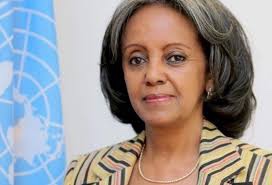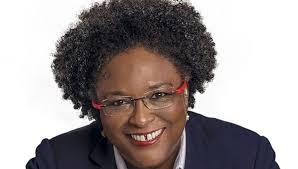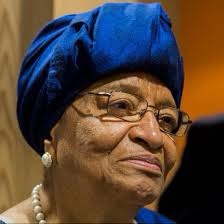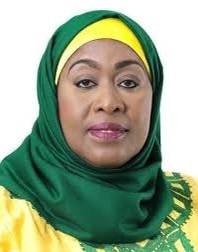By Dr. Joy Martinez, Staff Writer
Women are making history as heads of state.
The first woman to be democratically elected as prime minister of a country was Sirimavo Bandaranaike of Ceylon (present-day Sri Lanka), when she led her party to victory at the 1960 general election. The first woman to serve as president of a country was Isabel Martínez de Perón of Argentina, who as vice-president succeeded to the presidency in 1974 after the death of her husband. The first woman elected president of a country was Vigdís Finnbogadóttir of Iceland, who won the 1980 presidential election as well as three others to also become the longest-serving non-hereditary female head of state in history, serving for 16 years.
Ethiopia: Sahle-Work Zewde
Ethiopian Sahle-Work Zewde is the current President of the country and the first woman to hold the office. A career diplomat, she was elected president unanimously by members of the Federal Parliamentary Assembly on 25 October 2018. Born in the capital Addis Ababa, Zewde attended university in France. After graduating, she served as Ethiopia’s ambassador to France, Djibouti, Senegal and the Intergovernmental Authority on Development (IGAD), a regional trade bloc in East Africa. Abebe Aynete, a senior researcher at the Ethiopian Foreign Relations Strategic Studies think-tank, said Zewde’s experience makes her a competent spokesperson for the country’s political reforms on the international stage. “As a person who knows the Ethiopian system inside out, Zewde, as president, will offer more continuity in terms of policy but will have her own priorities, including female empowerment,” Aynete said.
Barbados: Mia Amor Mottley

Sahle-Work Zewde 
Mia Amor Mottley
Mia Amor Mottley has lived a public life of firsts – first female leader of the Barbados Labour Party and the Opposition; first female Attorney General, a post she held for five years; and youngest ever Queen’s Counsel (an attorney-at-law of high and distinguished standing) in Barbados. On 25 May 2018, Mottley become the eighth Prime Minister of Barbados and the first woman to hold the post. Mottley is credited with being the visionary behind the Education Sector Enhancement Programme, popularly known as Edutech, which aims to increase the number of young people contributing to the island’s sustainable social and economic development. The program involves the widespread use of information and communication technologies to assist in improving the quality of the teaching and learning process.
Liberia: Ellen Johnson Sirleaf
Internationally known as Africa’s “Iron Lady,” former President Ellen Johnson Sirleaf was elected President of the Republic of Liberia in 2005, two years after the nation’s bloody civil war ended. Her historic inauguration as Africa’s first democratically elected head of state took place on January 16, 2006. Prior to the election, she had served in the transitional government, where she chaired the Governance Reform Commission and led the country’s anti-corruption reform. She won reelection in November 2011. She led Liberia through reconciliation and recovery following the nation’s decade-long civil war, as well as the Ebola Crisis, winning international acclaim for achieving economic, social, and political change. Recognized as a global leader for women’s empowerment, President Sirleaf was awarded the prestigious Nobel Prize for Peace in 2011.
She is the recipient of The Presidential Medal of Freedom—the United States’ highest civilian award—for her personal courage and unwavering commitment to expanding freedom and improving the lives of Africans. Her many honors also include the Grand Croix of the Légion d’Honneur, France’s highest public distinction, and being named one of Forbes’s “100 Most Powerful Women in the World.”
Tanzania: Samia Suluhu Hassan
A few years after becoming the first female vice president in Tanzanian history, Samia Suluhu Hassan was sworn in Friday March 19th as the first female leader of East Africa’s largest country after the death of President John Magufuli on Wednesday. Samia Suluhu Hassan, 61, is the third Muslim to lead Tanzania, is also the second woman to become head of state in East Africa, and the second Muslim woman who wears hijab to become president of a country in which Muslims are a minority.

Ellen Johnson Sirleaf 
Samia Suluhu Hassan
Hassan began her government career in 2000, when she became minister for labor, gender development and children. She subsequently served as minister of tourism, trade and investment, and, from 2010 to 2015, she was minister of state for union affairs, a role in which she worked to head off a nascent independence movement in the semi-autonomous state of Zanzibar, her birthplace, in favor of continued union with Tanzania.
Described as a soft-spoken consensus-builder, Hassan will be the first president born in Zanzibar, the archipelago that forms part of the union of the Republic of Tanzania. Her leadership style is seen as a potential contrast from Magufuli, a brash populist who was often called by the nickname “Bulldozer” for muscling through policies and who drew criticism for his intolerance of dissent, which his government denied.
Vice president since 2015, Hassan gave a brief speech after she was sworn in, addressing a heavily male crowd that included two former presidents and uniformed officers.
“This is a time to bury our differences, and be one as a nation,” she said. “This is not a time for finger pointing, but it is a time to hold hands and move forward together.”

